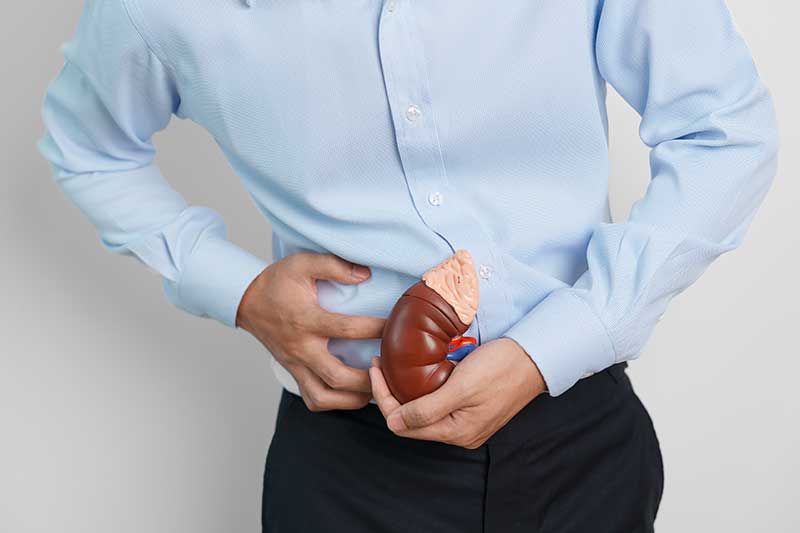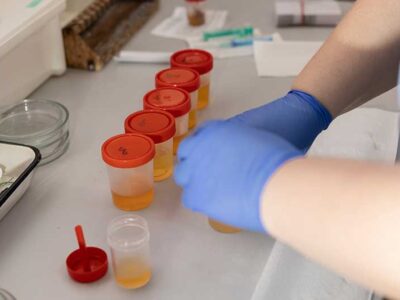Even though kidney stones are small, they can cause excruciating pain and distress. They are solid, crystalline deposits that form in the kidneys and can clog the days. Understanding the causes and preventative measures for kidney stones is crucial for avoiding this excruciating condition. This article will demystify kidney stones by investigating their causes and providing prevention advice.
What Are Renal Calculi?
Renal calculi, also known as kidney stones or nephrolithiasis, are solid aggregates composed of microscopic crystals. Various substances in the urine, including calcium, oxalate, uric acid, and cystine, can produce these crystals. Kidney stones can range in size from the size of a sand particle to that of a golf ball. They may remain in the kidney or move through the urinary tract, causing excruciating pain if they become lodged or obstruct urine passage.
Common causes of renal calculi
- Diet: Diet plays an important factor in the development of kidney stones. Oxalate-rich foods, such as spinach, beets, and almonds, can increase the likelihood of developing calcium oxalate stones. A high consumption of animal protein and sodium can also contribute to the formation of stones.
- Dehydration: Inadequate fluid intake can contribute to concentrated urine, which promotes the crystallization of minerals and the formation of kidney stones. Hydration is essential for preventing stone formation.
- Certain medical conditions, including hyperparathyroidism, gout, and urinary tract infections, can increase the likelihood that kidney stones will form. Additionally, genetics can play a role, as some people are more predisposed to developing stones.
- Certain medications, such as diuretics and antacids, can modify the composition of urine, making it more conducive to the formation of kidney stones.
- Sedentary lifestyles and obesity can contribute to the formation of kidney stones. Physical activity helps maintain a healthy weight and reduces the likelihood of developing kidney stones.
Preventive Measures
- Stay Hydrated: One of the most effective ways to prevent kidney stones is to drink plenty of water. Aim for at least 8 to 10 glasses of water per day in order to dilute your urine and flush out any potential stone-forming minerals.
- Modify Your Diet: Modify your diet to decrease your risk of developing kidney stones. Limit your intake of foods high in oxalate, such as spinach and rhubarb, and consume moderate amounts of animal protein and sodium. Instead, emphasize a diet rich in fruits, vegetables, and whole cereals.
- Contrary to popular belief, it is not recommended to reduce calcium intake in order to prevent kidney stones. Adequate calcium intake can aid in the binding of oxalate in the digestive tract, thereby reducing the quantity that reaches the kidneys.
- Limit Soda and Sugar-Sweetened Beverages: An increased risk of kidney stones has been linked to a high consumption of soda and saccharine beverages. Choose water or beverages without added sugar instead.
- Maintain a Healthy Weight: Obesity is a kidney stone risk factor. By maintaining a healthy weight through diet and exercise, stone formation can be prevented.
- If you have hyperparathyroidism or gout, work closely with your healthcare provider to effectively manage these conditions and lower your risk of kidney stones.
- Reduce Your Sodium Intake: A high sodium intake can increase calcium excretion in the urine, which can contribute to the formation of stones. Sodium restriction can aid in preventing this.
The conclusion
Kidney stones can be excruciating, but they are largely preventable through education and lifestyle modifications. You can significantly lower your risk of developing kidney stones by remaining hydrated, adjusting your diet, and treating underlying medical conditions. Remember that prevention is essential, and that making these changes can lead to a future that is healthier and stone-free. If you suspect you have kidney stones or are at risk for developing them, consult a healthcare professional for individualized advice.



